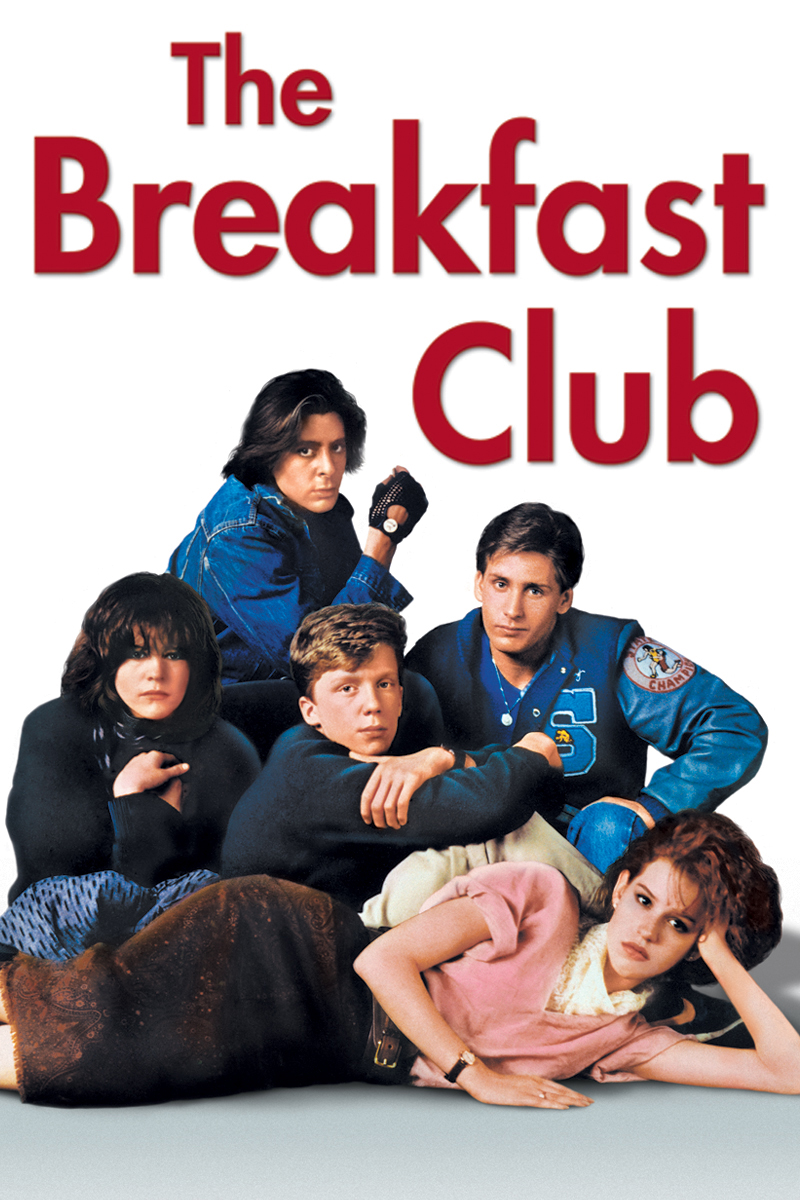Previously, I’ve discussed the relatability of Lorde’s music to the modern teen—which she largely achieved by simply conveying her own experiences as a modern teen—as well as HBO’s Euphoria, which depicts many of the harsh realities of what today’s teenagers face. Now, I want to mention a favorite movie of mine that has managed to remain prevalent to teenagers since it was released in 1985: The Breakfast Club. Warning, this will contain spoilers!

The Breakfast Club is an American coming-of-age comedy-drama that was written, directed, and produced by John Hughes. The overarching plot involves five high schoolers, all portrayed as clashing teenage stereotypes, spending their Saturday morning in detention. At first thought, this most likely sounds awfully mundane and shallow, but that’s precisely the point.
The main characters are: John, “The Criminal”; Claire, “The Princess”; Andrew, “The Athlete”; Brian, “The Brain”; and Allison, “The Basket Case.” These characters are introduced as one-dimensional cliches. John is the troublemaker. Claire is the pretty popular girl. Andrew is the popular dumb jock. Brian is the nerd. Allison is the weird girl. They all come from different cliques—they’re the students that would never hang out with one another.
The school’s assistant principal instructs the students to sit in the school library without moving, talking, or sleeping until 4:00 p.m., and to write a thousand-word essay describing “who you think you are” in this time. Instead, they end up arguing, smoking marijuana, and opening up about their lives. Through this, they discover that they all have a lot more in common than they previously assumed. One similarity they all share, for example, is having unhealthy relationships with their parents, albeit in different ways. They discover that their first impressions of each other were wrong, or flawed, gaining empathy as they learn of each person’s struggles, such as John’s abusive father, or Brian contemplating suicide due to a bad grade.
At the end of the movie, the students have gained a new perspective of each other and their peers in general, realizing that, despite outward appearances, they share many issues that are typical amongst American teenagers. Beyond the characteristics they share as students that attend the same high school, they also all endure the toxic expectations held by authority figures in their lives, such as their parents and teachers. Realizing that the boxes they are forced to fit into aren’t realistic or healthy portrayals of who they are, they begin to step outside of their comfort zones—such as when Claire, an “innocent girl,” kisses John.
Brian writes a singular essay to leave for the assistant principal, in which he proclaims: “Dear Mr. Vernon, we accept the fact that we had to sacrifice a whole Saturday in detention for whatever it was we did wrong. But we think you’re crazy to make an essay telling you who you think we are. You see us as you want to see us: in the simplest terms, in the most convenient definitions. But what we found out is that each one of us is a brain, and an athlete, and a basket case, a princess, and a criminal. Does that answer your question? Sincerely yours, the Breakfast Club.”

What I love about this movie—beyond its comedy, comfort, and overall entertainment—is how its themes pertained to teenagers in the 80’s, and still pertain to teenagers today. Despite some major differences that have changed many aspects of the average teenager’s life, The Breakfast Club still provides an insightful and relevant look into how teenagers navigate identity, authority, stereotypes, peer relationships, and the expectations they face. In my (correct) opinion, The Breakfast Club is both a classic and a staple for American teens.
I have heard people rave about how good The Breakfast Club is but I’ve never been interested in watching it until now! Despite your spoiler warning in the beginning of your blog, I feel like there is a lot I still don’t know about the movie. I think it’s super interesting how the characters are written in a very stereotypical way, but the major takeaway from the movie is that not everyone can be reduced into these simple archetypes. It’s evident why this movie can still be relatable to teens in modern times. You mentioned that it is relevant because the movie has commentary on peer pressure, but I would imagine that it offers useful commentary on how teenagers are viewed by adults. For example, principal Vernon tries to reduce the 5 students into simple boxes by getting them to write the “Who you think you are” essays, but the students end up revealing that they are far more complex than what can be portrayed in a 1,000 word essay.